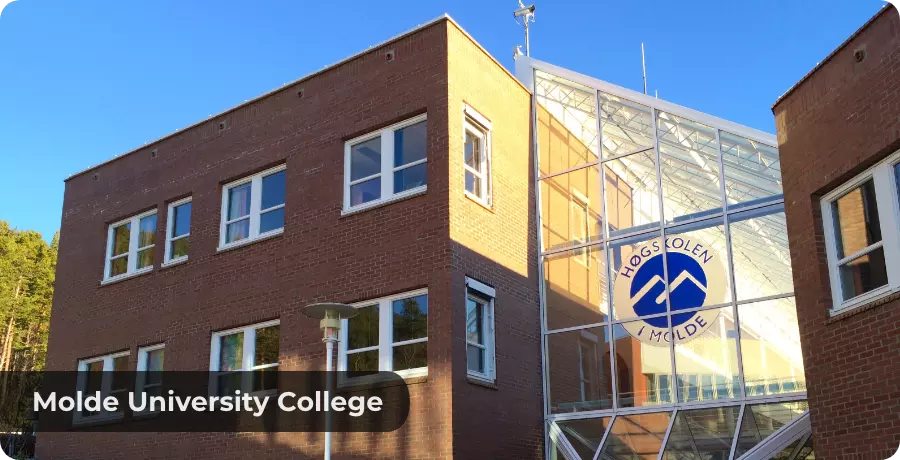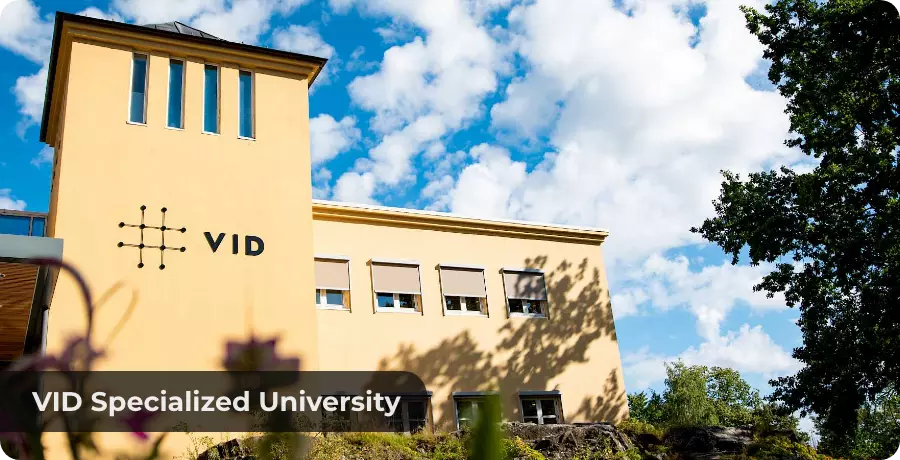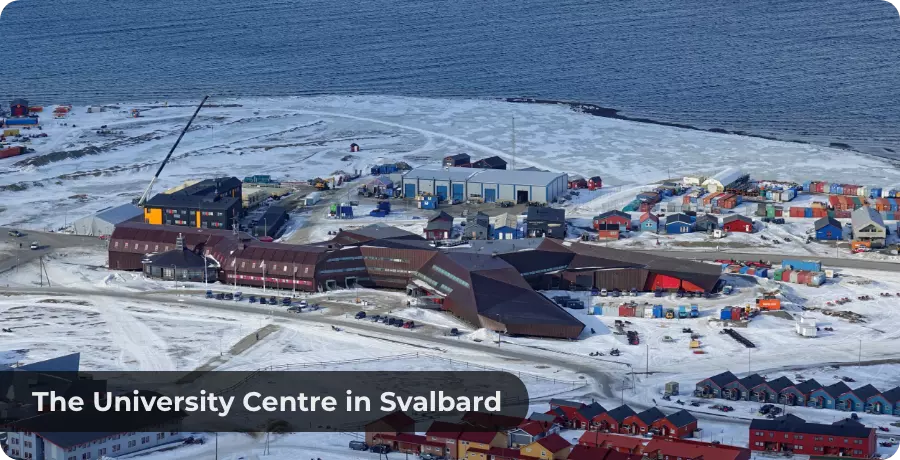Studying abroad can be an amazing adventure, especially when choosing a country like Norway. Many students from India are now considering Norway for their studies.
Norwegian Universities offer excellent education with a variety of courses for all interests. They promote creativity and collaboration among students. Norway also has stunning scenery, cool cities, and many interesting things to do. Thus, It's a perfect place for exploring and making memories.
This blog will discuss studying in Norway for Indian students. It will address frequently asked questions about visa requirements, associated costs, and job opportunities after graduation. Norway also offers exciting education opportunities, like learning new things, experiencing a different culture, or embarking on an adventure.
Cost of Studying in Norway
Studying in Norway involves several expenses, mainly tuition fees and living costs. Tuition fees for non-EU/EEA students were introduced in 2023, depending on the university and program. Generally, Bachelor’s degree tuition can range from 80,000 NOK ($8,000) for more affordable programs to 490,000 NOK ($49,000) for prestigious ones. Additionally, living expenses are estimated at around 128,887 NOK ($13,000) annually, covering accommodation, food, transportation, and other daily necessities.
Eligibility and Requirements
About Free Education in Norway for Indian Students
Previously, Norway provided free education to international students, including Indians. However, beginning in autumn 2023, tuition fees were introduced for non-EU/EEA students. Nonetheless, studying in Norway remains relatively affordable for Indian students compared to many other countries.
IELTS to study in Norway
Most universities in Norway require proof of English language proficiency, often demonstrated through standardized tests like IELTS. The minimum IELTS band requirement varies among universities and programs, with some requiring a minimum band of 5.0 for Bachelor’s programs and 6.5 for Master’s programs.
Student Experiences in Norway
Norway unquestionably provides an unparalleled environment for Indian students to pursue higher education. With its exceptional education system, research opportunities, and remarkable work-life balance, Norway remains the ideal destination for international students. Moreover, the country provides promising job prospects post-graduation.
While Norway is relatively expensive compared to India, it offers value for money in terms of education quality and living standards. Housing can be significantly more expensive in Norway than in India, but overall expenses are moderate when considering the benefits of studying in Norway.
Visa and Financial Support
The Norwegian Directorate of Immigration recommends that students have a sufficient bank balance to cover living expenses while studying in Norway, estimated at around 128,887 NOK ($13,000) per year.
Despite the introduction of tuition fees for non-EU/EEA students, including Indians, there are still avenues for financial support. Students can explore scholarships, grants, and exemptions, such as being married to a Norwegian citizen or working full-time in Norway for at least 24 months.
Academic Intakes and Language Requirements
Norway typically has two intakes. They are Fall (August/September) and Spring (January/February), allowing students to choose their start date according to their preferences and academic planning.
The Spring session, typically commencing in January, marks the beginning of academic opportunities in Norway. Conversely, the Autumn session, starting around August or September, serves as another significant entry point for students, with most programs and courses launching during this period.
Indian students need to complete their school education up to class 12 to be eligible for Bachelor’s degrees. For Master’s degrees, applicants should hold a bachelor’s degree or an equivalent program lasting at least three years.
Norwegian residents, including Indian students who are residents of Norway, can study free of charge. Tuition fees for non-resident Indian students vary depending on the program and institution they choose.
English serves as the primary medium of instruction in Norwegian universities and colleges, alongside Norwegian and Sami (the official languages). Many courses and programs are conducted entirely in English, facilitating an inclusive learning environment for international students.
Norwegian universities are renowned for offering high-quality education across various disciplines. Rooted in principles of equality and modernity, Norway fosters a welcoming and tolerant society, enriching the overall educational experience for students. The country's picturesque surroundings, abundance of outdoor destinations, and commitment to green initiatives further contribute to a holistic and enriching educational journey.
Learning Norwegian
Learning Norwegian can be challenging, especially for non-native speakers. However, many universities in Norway offer language courses tailored to international students' needs. Moreover, since most Norwegians are proficient in English, students can manage without knowing Norwegian, although learning the basics can enrich their experience.
Testing and Admission
IELTS score
The minimum IELTS band requirement varies by university and program. Typically, universities in Norway may require a minimum band of 5.0 for Bachelor’s programs and 6.5 for Master’s programs. However, specific requirements should be checked with individual institutions.
Post-Study Opportunities
Norway offers post-study work permits to international students upon completing their studies. This permit allows them to work in Norway for a specified period, which can eventually lead to permanent residency, provided certain conditions are met.
1. Work in Norway
a. EU/EEA/Swiss Citizens
If you are from an EU/EEA/Swiss country, you can work in addition to your studies. However, remember that you are primarily a full-time student, so no separate work permit is required for EU/EEA/Swiss nationals. Nordic (Swedish, Danish, Icelandic, and Finnish) students do not need to register with the police.
b. Non-EU/EEA/Swiss Citizens
International students from outside the EU/EEA/Switzerland can work up to 20 hours per week during the semester and full-time during holidays. They are automatically granted permission to work part-time when they receive a study permit. After completing the degree, they may stay in Norway for one year to look for work.
2. Jobseeker/Researcher Permit
If someone wishes to seek employment as a skilled worker in Norway, they can apply for a jobseeker/researcher permit. They will have to apply before their current permit expires and after completing their degree. This permit is valid for a maximum of 12 months.
Conditions for Eligibility:
A student must have a residence permit at a university, vocational school, or upper secondary school. Your degree must have been completed in Norway. Your education must be recognized or about to be recognized. You must have a residence permit with your funds as a researcher or a skilled worker with an employer in Norway.
3. Internships
Internships can help you gain relevant work experience. Many institutions have internship agreements with companies in Norway or abroad. Summer internships for Master’s degree students are also available.
Norway Climate
Due to its northern location, Norway tends to be colder than Canada. The climate varies across regions in both countries, but Norway's proximity to the Arctic Circle contributes to its generally colder temperatures.
Canada vs Norway
Canada and Norway offer high living standards, but the choice depends on individual preferences. Norway boasts stunning natural landscapes and a strong welfare system, while Canada is known for its diverse cities and cultural richness. Ultimately, the decision hinges on lifestyle preferences, career opportunities, and personal priorities.
Conclusion
Norway offers Indian students a great opportunity for quality education and unforgettable experiences despite the introduction of tuition fees for non-EU/EEA students. The country's high living standards and career prospects post-graduation make it worth the cost. Its stunning natural beauty and vibrant culture also provide a backdrop for personal growth and exploration.
To make the most of this opportunity, Indian students should plan their finances wisely, understand the requirements, and seize opportunities like scholarships. Studying in Norway promises to be an enriching experience that will shape your future meaningfully. Embrace the adventure of studying in Norway and leap!







.webp)




